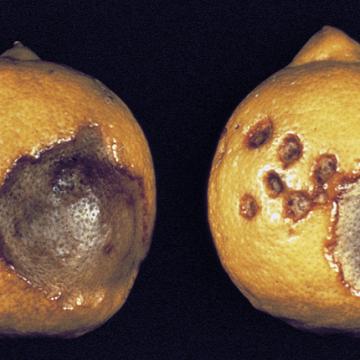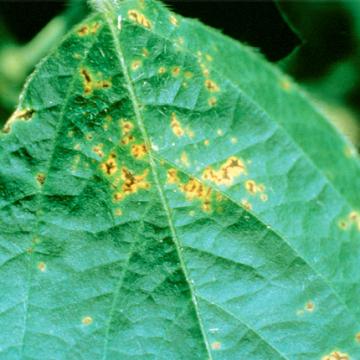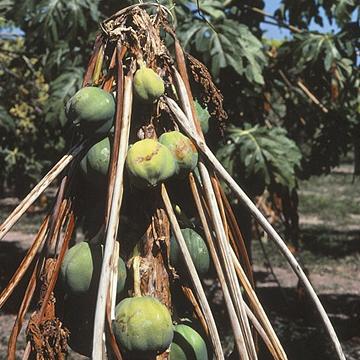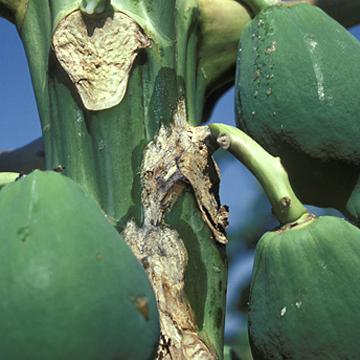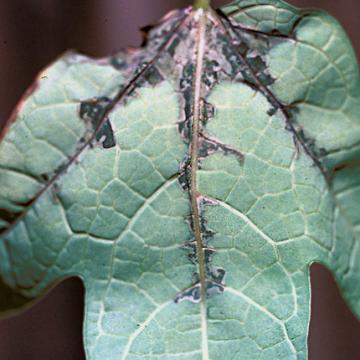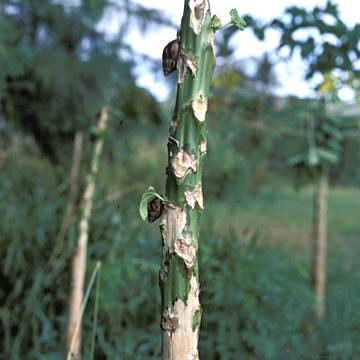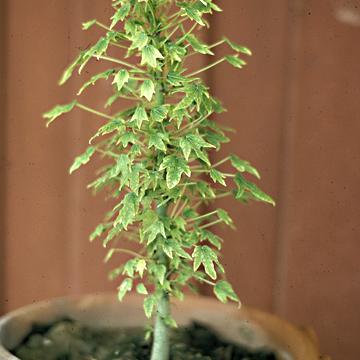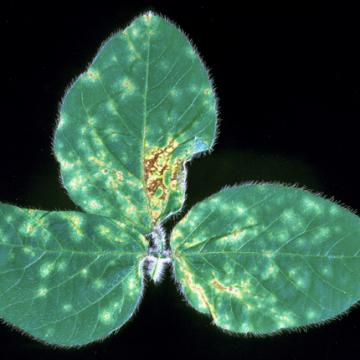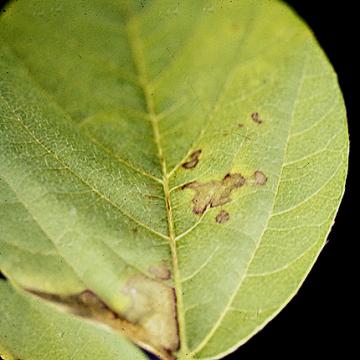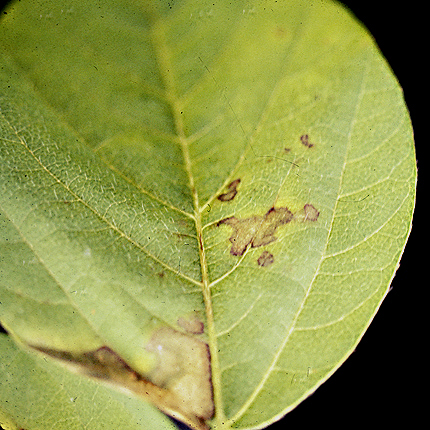DISEASE: Bacterial blast and black pit
HOST: Citrus (Lemon)
The term "black pit" refers to black lesions on fruit, which may be specks or large, sunken pits as seen here. They also may be light tan, later becoming reddish brown to black.
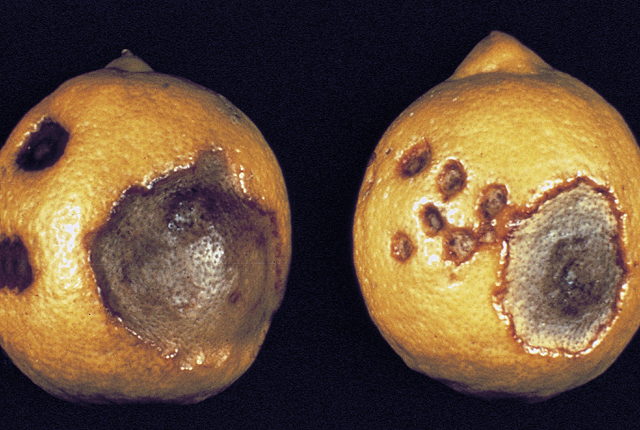
Bacterial blast and black pit | Citrus (Lemon)
DISEASE: Bacterial blast and black pit
HOST: Citrus (Lemon) (Citrus limon)
PATHOGEN: Pseudomonas syringae pv. syringae
SOURCE: J. Menge
DISEASE: Bacterial blight
HOST: Soybean
Leaves with yellowish brown necrotic lesions. Lesions also may be yellow to light brown and bordered by yellowish green halos. Lesions occur on stems, petioles, and pods.
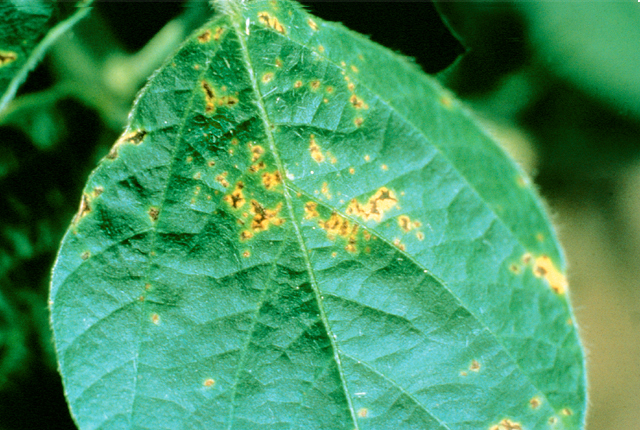
Bacterial blight | Soybean
DISEASE: Bacterial blight
HOST: Soybean (Glycine max)
PATHOGEN: Pseudomonas syringae pv. glycinea
SOURCE: J. B. Sinclair
DISEASE: Bacterial decline
HOST: Papaya
Bacterial decline of papaya, historically called St. Croix decline, was thought to be caused by a fungus. This picture shows a papaya with dead top and side branches, a severe stage of the disease.
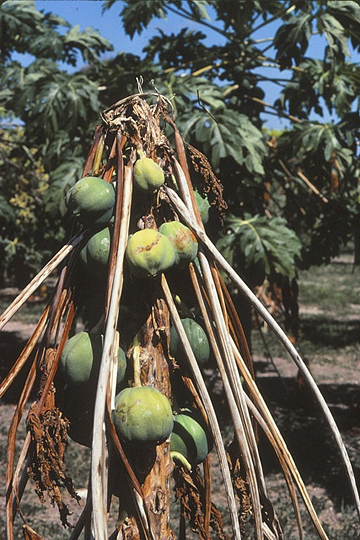
Bacterial decline | Papaya
DISEASE: Bacterial decline
HOST: Papaya (Carica papaya)
PATHOGEN: Erwinia papayae
SOURCE: M. Schroth
DISEASE: Bacterial decline
HOST: Papaya
Water-soaked papaya stem in St. Croix. Dark, water-soaked, greasy lesions occur on stems and leaves. The causal agent differs somewhat from descriptions of Erwinia papayae D strains in Micronesia.
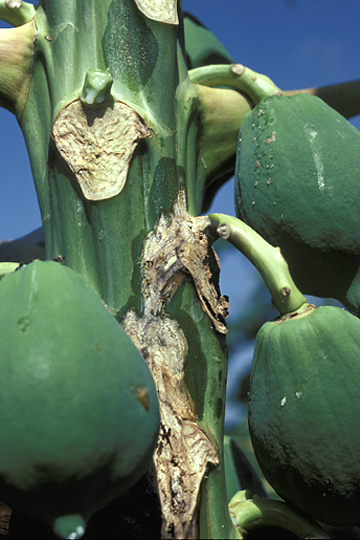
Bacterial decline | Papaya
DISEASE: Bacterial decline
HOST: Papaya (Carica papaya)
PATHOGEN: Erwinia papayae
SOURCE: M. Schroth
DISEASE: Bacterial decline
HOST: Papaya
Bacterial invasion of leaf veins and adjacent tissues of papaya in Micronesia. This disease has also been called canker, dieback, and blight.
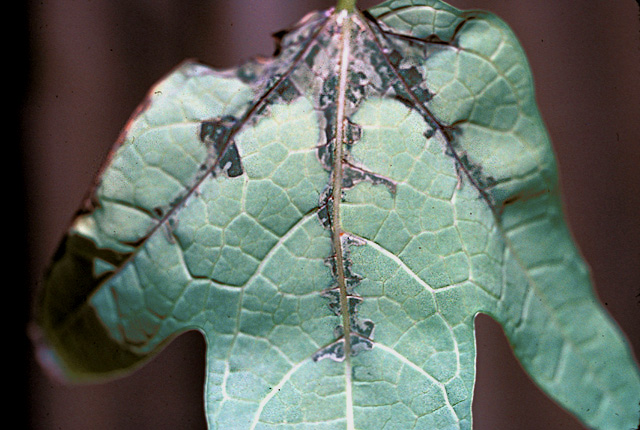
Bacterial decline | Papaya
DISEASE: Bacterial decline
HOST: Papaya (Carica papaya)
PATHOGEN: Erwinia papayae
SOURCE: E. Trujillo
DISEASE: Bacterial decline
HOST: Papaya
Complete destruction of papaya plantation in Micronesia. Only a severely damaged trunk remains.
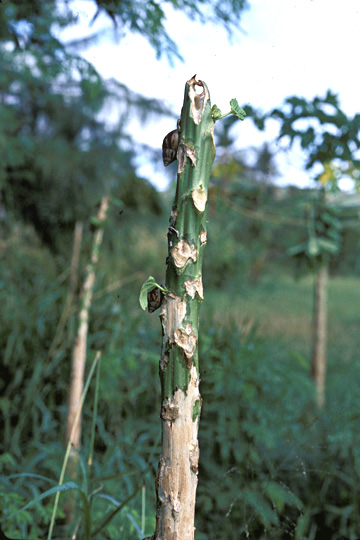
Bacterial decline | Papaya
DISEASE: Bacterial decline
HOST: Papaya (Carica papaya)
PATHOGEN: Erwinia papayae
SOURCE: E. Trujillo
DISEASE: Bacterial fasciation
HOST: Papaya
Fasciation symptoms of papaya. Causal agent is unknown.
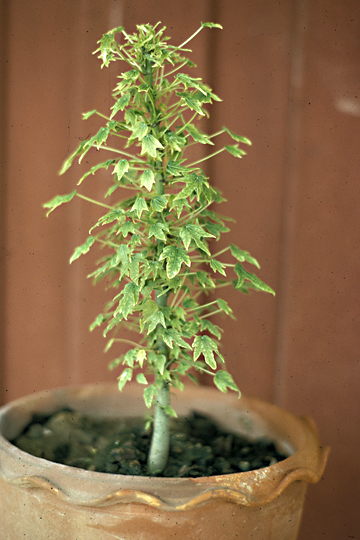
Bacterial fasciation | Papaya
DISEASE: Bacterial fasciation
HOST: Papaya (Carica papaya)
PATHOGEN: Causal agent unknown
SOURCE: A. Alvarez
DISEASE: Bacterial leaf spot
HOST: Soybean
Early symptoms of bacterial blight.
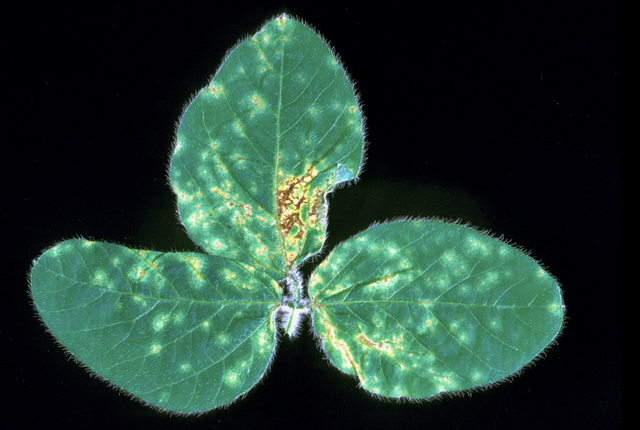
Bacterial leaf spot | Soybean
DISEASE: Bacterial leaf spot
HOST: Soybean (Glycine max)
PATHOGEN: Pseudomonas syringae pv. glycinea
SOURCE: D. Cupples


